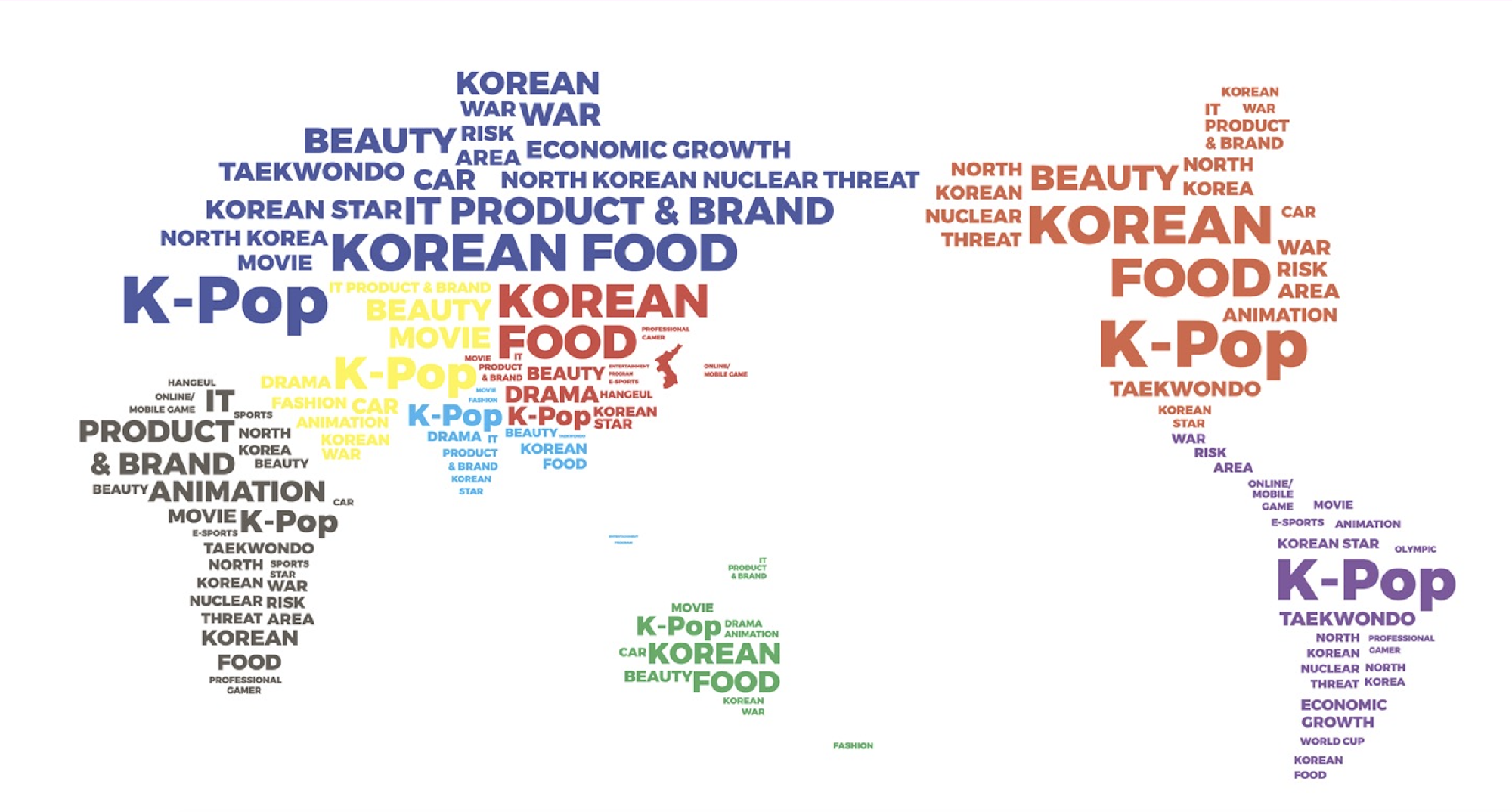
 ▲ Korea iconography by regions @KOFICE (2020)
▲ Korea iconography by regions @KOFICE (2020)
Korean culture, often referred to as the Korean Wave (Hallyu), appears to be at its peak worldwide. The Korean wave encompasses various elements of Korean popular culture, including K-pop music, dramas, films, cosmetics, food, comics, novels, and fashion.
In recent years, Korean literature has been gaining recognition on the global stage. In 2024, Korean writer Han Kang won the Nobel Prize in Literature. This news was celebrated within the Korean literary community and by Korea as a whole, particularly since she was the first Asian woman to receive this award. In the 2022 International Booker Prize, writer Sangyoung Park's novel Love in a Big City made the longlist, while Bora Chung's short story collection Cursed Bunny made the shortlist. With two authors being nominated for the same prestigious award, this marked another proud moment for Korean literature.
It is impossible to discuss K-culture without mentioning K-drama. Recently, the highly anticipated second season of the successful series Squid Game was released. The series is notable for introducing several traditional Korean games, such as Biseok Chigi, Red Light/Green Light, Ttakji Chigi, Gonggi Nori, ]egi Chagi, and Paengi Chigi. Within the context of these childhood games, the show explores darker aspects of society and human nature. While media reviews of the season have been mixed, the show has been a viewing hit with it picking up over 125 million views in its first 11 days-a Netflix record.
As global interest in Korean culture continues to rise, The SeoulTech conducted a survey among international students to analyze the global impact of K-culture. Respondents expressed interest in various aspects of Korean culture, including the elements previously mentioned, with K-pop being the most favored category.
According to the survey, a significant number of respondents were aware of the growing international recognition of Korean literature. One respondent described Nobel Prize in Literature won to a Korean author as "a remarkable achievement," while another mentioned an interest in the development of postmodernism in Korean literature.
The responses regarding Netflix's original series Squid Game were diverse. Most participants attributed its worldwide success to its unique concept and social commentary. One respondent found the contrast between childhood games and harsh reality intriguing, while another viewed it as "more than just a thriller," interpreting it as "a reflection of social issues and economic struggles."
Many respondents also expressed interest in traditional Korean games featured in Squid Game. Some respondents stated that they would like to experience these games previously mentioned.
When asked what aspects of Korean culture they would like to learn more about, respondents highlighted diverse topics such as the creation of the Korean writing system (Hangul), Korean mythology and shamanism, traditional proverbs, royal court culture, women's rights, and the influence of Western culture on Korean youth.
The survey results suggest that K-culture is expanding beyond a passing trend and establishing a significant cultural influence worldwide. Moreover, the harmony between Korea's traditional and modern cultural elements continues to spark global curiosity and engagement.
Reporters,
Hyewon Kim happyhw2@seoultech.ac.kr
Somin Hong hongsomin@seoultech.ac.kr




 Comment 0
Comment 0 Posts containing profanity or personal attacks will be deleted
Posts containing profanity or personal attacks will be deleted